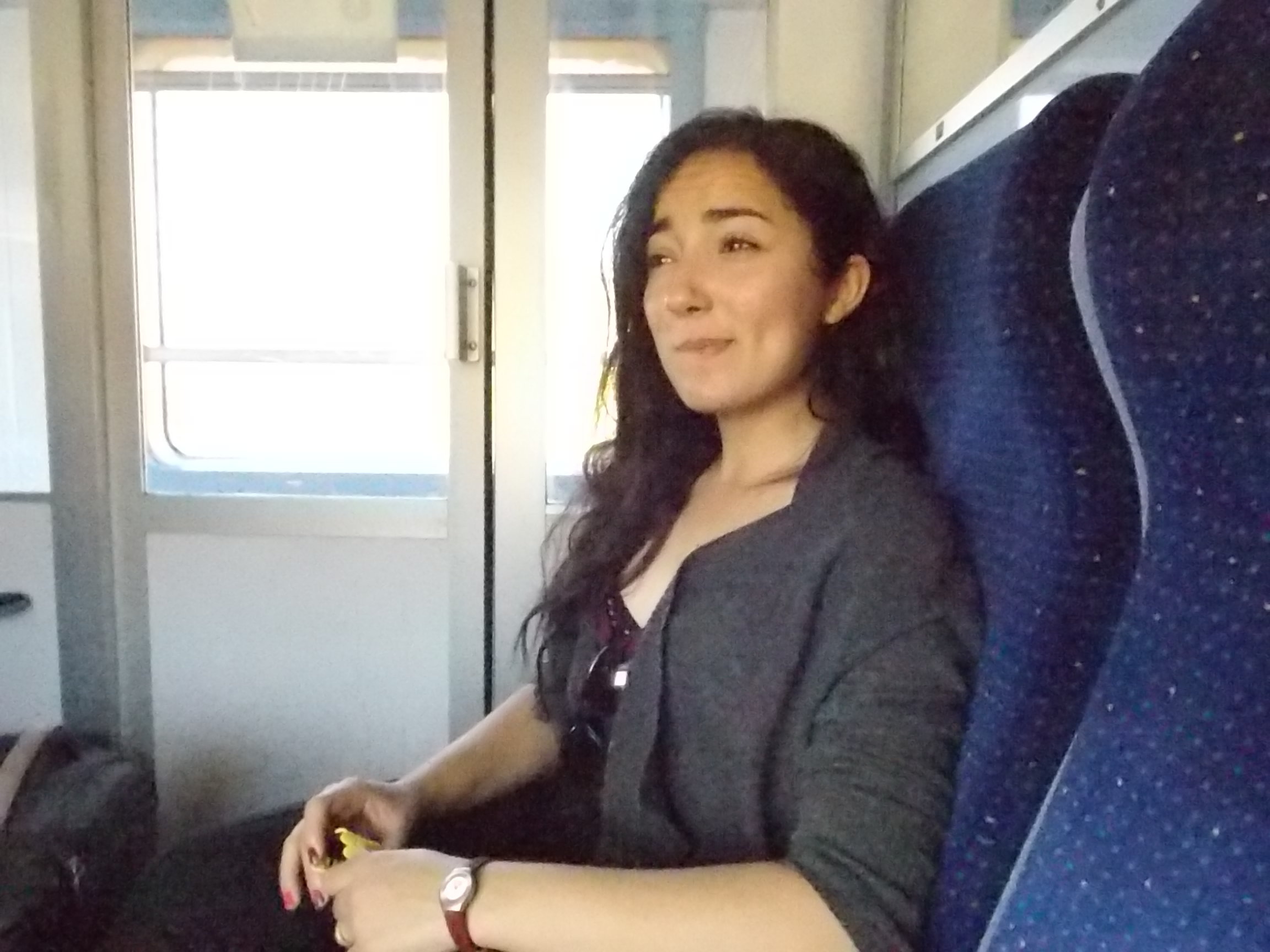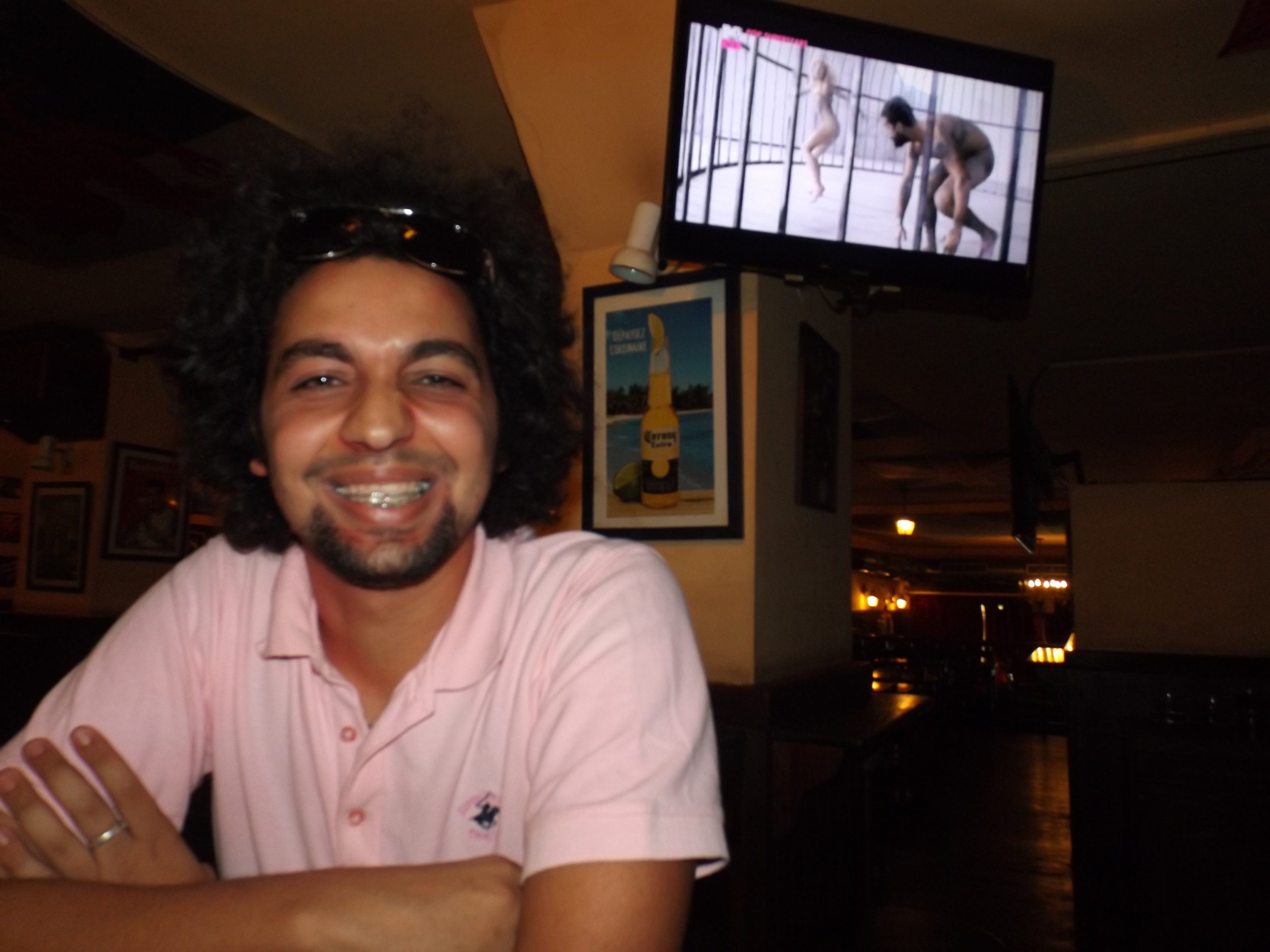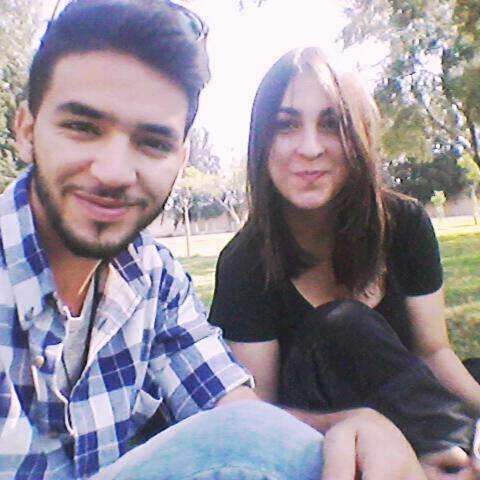What it’s like to be a student in Morocco today
Katarina Mihaljević, MA student Philosophy, Science and Society at TSH, went to Morocco recently. She brings back stories of four students from universities in Tangier, Rabat and Fez she interviewed during her stay there. They talk about their visions of what it means to be a student in Morocco, families, aspirations, inspirations and a general university dynamics.It has been a while since I returned from my first trip to Morocco. Again and again, I’ve caught myself trying to project all of my impressions at the clouds passing, in an attempt to get a clear structure of what I saw, heard and felt in Al-Maghreb (Arabic name for the Kingdom of Morocco). During the trip, I met with the students from Tangier, Rabat and Fez. People I had a chance to meet are young, engaged and critical individuals who offered me a story of what it means to be a student in Morocco today.
Upon arrival, I took a train from Tangier to Rabat, sharing a coupe with Rim, a 19-year-old student from Casablanca, studying at the Faculty of Science and Technology in Tangier. Her parents, both physicians, live in Casablanca and every two to three weeks she takes a five-hour-long ride home to visit her family. We shared stroopwafels, which, just to mention, no one I met during my trip particularly liked. Seven out of ten returned half-eaten, with the remark: “trop sucré”.

“I find my inspiration in famous scientists like Louis Pasteur,” says Rim. She studies biological and chemistry sciences and hopes to one day become a researcher. “We look up to hard workers, just like Mr. Pasteur was.” When we arrive at the University, a different kind of atmosphere emerges in the conversation: “Even in our field, there is a taboo. The unquestioned authority of religion. You simply do not talk about it. You can question it, but it will not work well. You will not suffer, but you will be alone.” She continues: “If any of the theories we discuss contradicts with the religious teachings, they simply get rejected.”
When asked how to face this issue, Rim is full of ideas: “Investing in knowledge exchange is the key to change.”
“Mostly boys go to the bars”
As Morocco is predominantly an Islamic country, alcohol consumption is technically forbidden. This is not the case in the hotels and restaurants where a lot of tourists come. Also, Morocco has three brands of beer and a wine industry. So, how strict is this ban? “When going out, some people meet in bars, but those who drink are mostly boys. They get away with it. Even smoking hashish. If a girl is seen with a cigarette and a beer, she is called a whore,” says Rim. She continues: “Of course, this can vary across the country. Cities like Agadir, Rabat and Casablanca have a more relaxed approach to women drinking beer, due to the higher influx of tourists.”
As the train reached Rabat and Arbaqua station appeared, I slowly stopped taking notes and Rim and I started to chat about universal life events like experiments with being a vegetarian and so-called social anxiety. I left her and arrived at Rabat to immediately meet more students on the way to visit their parents down south, some even preparing to travel for ten hours. What struck me the most, was the fact that no one was taking their dirty clothes back home to be washed.
At noon, I met this young man who preferred to stay anonymous. A.E. is 22 and after finishing primary school in Rabat, he moved to U.S. where he finished a high school. Afterwards, he returned to Rabat and is currently a student here.
“Professors act like authority figures. Whatever you do, you can’t challenge the authority”
He gives a chilling example of how authority works in Morocco: “A girl at my previous, public university got her phone stolen. I heard the dean yelling at her that it was all her fault and stood up for her. Next day, seven guys beat me up in one of the classrooms. I got it because I challenged the authority”. A. says this mirrors the general power structures in the country. “Government is authoritarian, corrupted and doesn’t care about us. The corruption is so far-reaching, that if you even try to stand up to it on the lowest of levels, you will soon regret it.”
The storm continues: “99 percent of the students study just to have better chances to get a job. And if you want to get a decent one, you need to be part of the power structures. You need to suck up to those above you.” When asked about the role of students in the future of Morocco, A. is more optimistic: “I believe that new generations of students, that have the experience of new media, will soon replace the old army of authoritarian professors. In the ideal situation, we will make the government more responsive to its people.”
As we all met in a pub called “Upstairs”, I had the unique opportunity to do a beer tasting while talking to another student from Rabat, who has a different studying experience but the same wish to move to the U.S. His name is Moulay Ahmed Fadhil, he is 25 and he is studying at PIIMT (Private International Institute of Management and Technology).
“Public and private universities are two different worlds”
Moulay describes his experience at a public university: “There are 300 students in one classroom, the lecturer uses a microphone to reach everybody. And there is absolutely no way to interact– you simply don’t get space.” Luckily, Moulay has supportive parents that helped him through his struggles: “My parents stick with me through everything. I am the only son and the family has reasonable expectations from me.”
Moulay shows fascination with American culture and lifestyle: “Stevie Ray Vaughan has the blues. I love blues music. I play guitar and I enjoy performing.” Moulay is very eager to move to Florida after his graduation and start a new life there. He also believes that the American approach to business and management is highly effective and that their techniques should be widely implemented in Moroccan society.
We talk on, about the case of a man getting five years prison for impersonating the voice of a princess Selma and what would happen here in the Netherlands if someone was to do the same with Princess Beatrix’s voice. I had no answer to that.
In Fez, a city known for hosting the oldest university in the world, the University of Al-Qarawiyyin, I met Ammar, a 19 years old student at the School of Applied sciences Triq Mouzar. As far as I managed to understand it, Triq Mouzar should represent an equivalent to Dutch HBO schools. Ammar is studying technical studies and has a part time job in a photo studio. He is also the only son in the family and that brings a lot of pressure on this urban youth.
“I want to be a professional photographer, and an English teacher.To do that, I need to be very responsible and change a lot of habits.” Ammar is pointing out the strength of group influence here in Morocco: “If you have bad friends, who drink and smoke hashish, you quickly turn bad. It is really hard to get back on the right path without strong support from your parents.” Ammar has strong opinions about what Moroccan students should work on: “Ï like England because it is classic, people respect each other, they work hard, and they work more than we do.” He continues: “But that is because of the mentality, people here are giving up because they have no support from the country. Students give up too, especially when their friends give up.”
When we talk about the importance of being a student, Ammar gets more optimistic: “I will meet my future wife here. I want to have one daughter and she will be my princess.”
I kept chatting with Ammar and two other boys, Aymane and Ayoub who both want to be famous businessmen’ and live in France and Buenos Aires. They also want to be very rich and make their families happy, lead a good life with the people they like and possibly start a family. As I move to the end of my stay, my original idea to pont out the differences between Moroccan students and us starts blurring. I started to realize that we more or less share the general ideas about what should be part of a good life. And unexplainable love for Nike shoes, tight sweatpants and fake Raybans.








